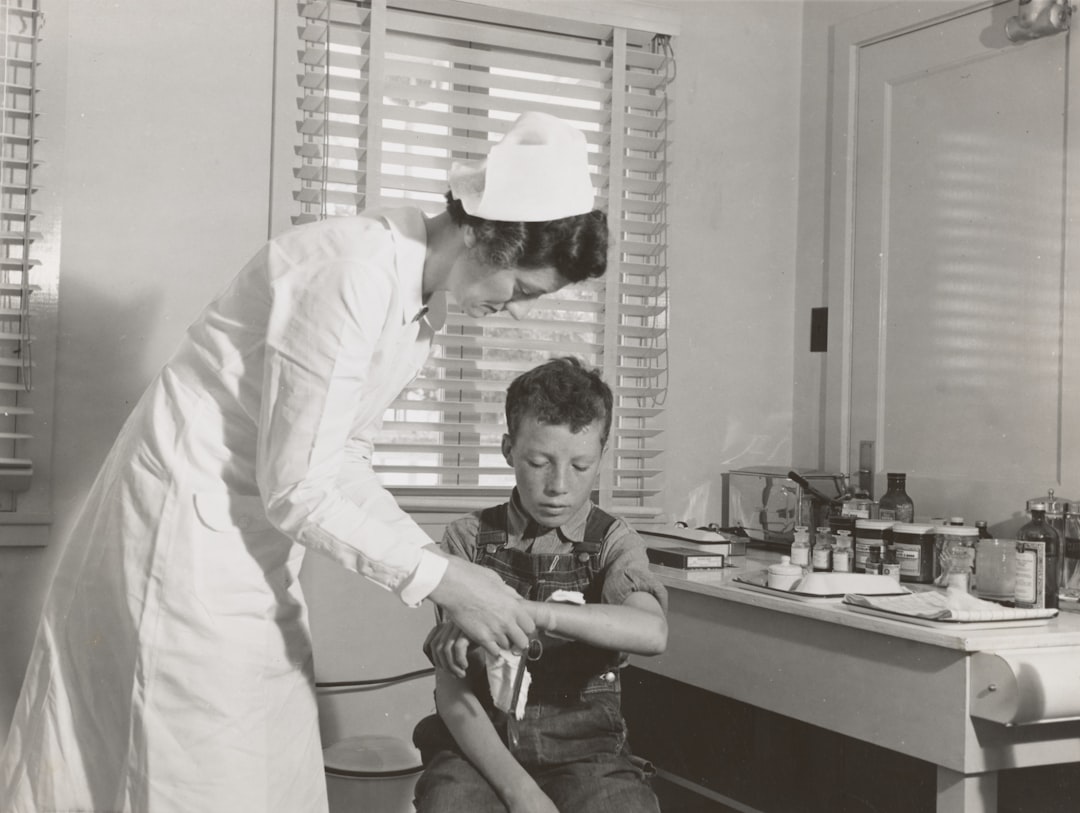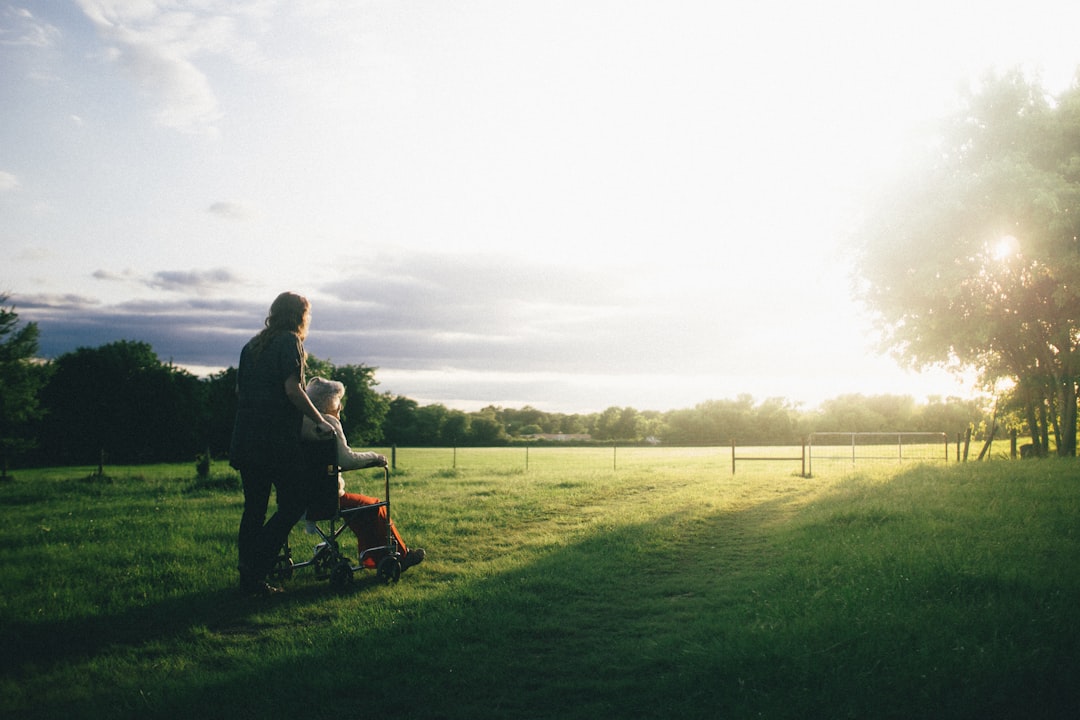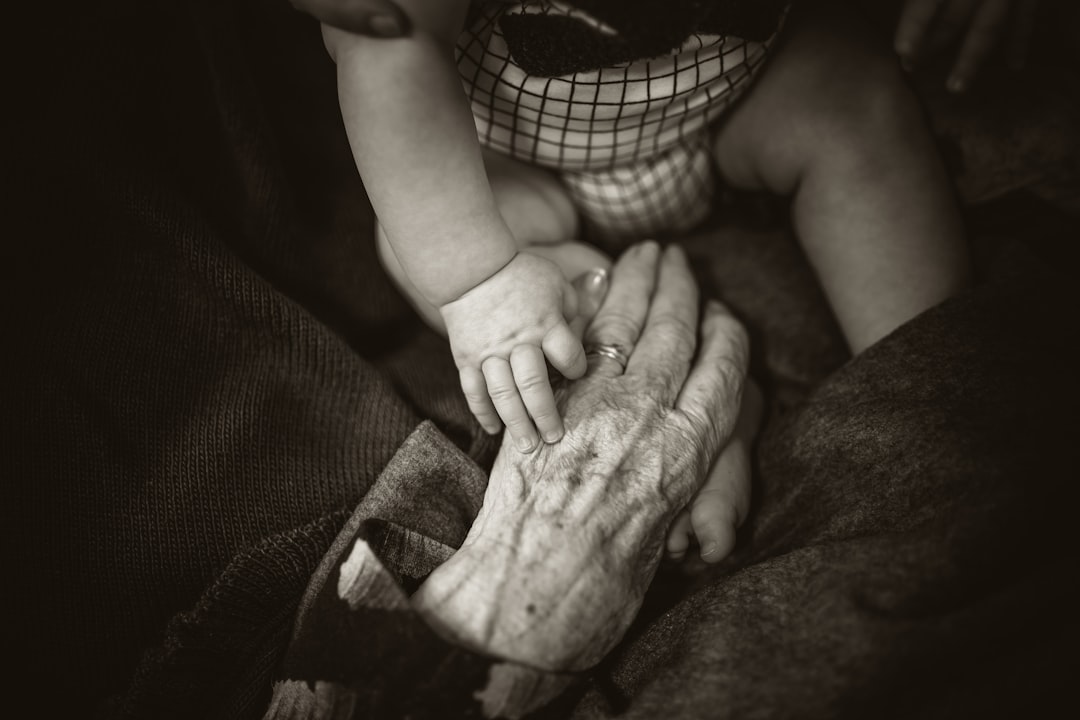Nursing Shortage, Healthcare & Ageism in BC
My conversation with Registered Nurse, associate professor and podcaster Shelley Canning. As well, a special addition of Photo Friday with Alex Harte!

We live in a pretty miraculous country. In Canada, we have a publicly funded healthcare system. In my view, our system is rather incomprehensible. No matter your level of income, personal circumstances, or background you receive care immediately. It is a system we all pay into through our taxes and something I think we should be proud of as community members.
Is our system perfect? No. But, we can contrast it with the United States, where 44% of respondents say they didn’t go to the doctor when they were sick or injured because they couldn’t afford it. As well, 40% of Americans report skipping a recommended medical test or treatment because of the cost.1 A 2009 study by Harvard Medical School found that 45,000 Americans die every year as a consequence of not having health insurance.2 Many Americans also carry medical debt.
My first broken bone came from falling down the wrong way in elementary school dodgeball. My mother and I relied on social assistance, and often relied on community resources like Chilliwack Community Services or local churches. When I broke my arm we received great care from Chilliwack General Hospital. I don’t know how much it costs to reset a bone, get X-Rays, or have a physician run various tests. I am blissfully unaware of the costs to have these services at my disposal.
During this pandemic, our healthcare system has been challenged and tested. British Columbia has a nursing shortage.3 We also lack family physicians in our province.4 Our healthcare workers are stressed, and overworked just trying to meet the needs of their community. As community members, this makes us nervous.
Will the health care providers be able to give our loved ones the care they need? Will something be overlooked or missed because of the pressure on the staff? What can we do to address the shortage of nurses and physicians and ensure quality care for our community? I sat down with Dr. Shelley Canning who is a registered nurse, and associate professor at the University of the Fraser Valley to learn more about her thoughts on these issues.

My grandmother chose to be a nurse, and worked at Coqualeetza Indian Hospital where she met my mother as a baby. She cared about her patients. She saw that my mother would need a lot of care and chose to raise her as her own. When I think of nurses, I think of kind, compassionate, health care workers who care about the members of their community. In 2020, we collectively rang bells and made noise as a way to thank our front line workers, and nurses for the risks they were taking to keep us safe.
I had the pleasure of sitting down with Shelley Canning, who identifies first and foremost as a nurse. Dr. Shelley Canning is an associate professor in nursing at the University of the Fraser Valley (UFV). She is the coordinator of the UFV Centre for Education and Research on Ageing (CERA), and a research associate with the Community Health & Social Innovation Hub (CHASI). Shelley completed her doctoral studies in the School of Nursing at the University of British Columbia where her dissertation research explores issues of engagement, meaning, and quality of life for older adults with advanced dementia. She is also a co-host of the podcast Gero Nurses: Tales from the Front.
One of Shelley’s research interests is ageism. I found this interesting because one of my least favourite parts of an interview is when a guest says “I don’t want to age myself” or “This will date me”, as if it is a bad thing to get older. We all have beautiful chapters of our life, and I think that should be embraced — not avoided. To understand perceptions of aging, Shelley had youth from various grades create images of what they thought older people looked like, and what dementia looked like. Here is a quote of Shelley, from the podcast, talking about her research:
“Age and Dementia are kind of big ideas. So we’re asking them to draw a picture of someone that is old, and draw a picture of someone who is living with dementia. In grade 1, they got busy right down to work drawing. Then we asked who are you drawing, and what is special about it? Many of those kids, in grade 1, they drew their moms because mom is an older person and one of the little girls drew her sister, holding a cell-phone because her sister is 16 when you get older you can have a cell-phone. So, very logical it makes sense. Age for those kids was someone older than them”.
Then grade 3 and 4 they had more of the things we might have expected. They drew mostly grandparents, a lot of grey hair, a lot of wrinkles, some kind of cranky faces. They weren’t sure about dementia.
We did the grade 12’s and that was really interesting. The picture of the older person, was quiet, was sort of more or less what we would have expected again, a higher level of art — obviously. When we asked them to draw a person living with dementia, they had a much more abstract approach to it. One of the drawings, was kind of the paper was cut in half and there was two identical houses and there was a little figure of a woman moving this way and that way. When we asked her what she was drawing she described a scenario where her grandmother had gotten lost in the neighbourhood and went to the wrong house. So when she thinks of dementia she thinks of this experience with her grandmother.
Another student drew a brick wall with this kind of swirling mass on one side of it, and it was to represent this memory block that he thinks of when he thinks of dementia. So, your brain is trying to reach back past this block to reach the memories”.
The images show how our perceptions of age change as we get older. The drawings the students created will be available for people to see at an art exhibit taking place on October 1st, 2022 at the UFV art gallery.
I found Shelley Canning to be kind, incredibly thoughtful and brought a lot of wisdom to complex problems. She was well aware that there is no quick fix, but that every step matters. She also highlighted the importance of preserving the identity that nurses have. I gained a lot from Dr. Canning’s perspective. It sounds like the B.C. provincial government is taking steps to address the nursing shortages, and ensure proper care for our seniors but these solutions will take time.
I think it is so important that people diversify their interests, and get involved in different things. Shelley educates the next generation of nurses, she highlights the beauty of her profession through a podcast, she works to understand our misconceptions around aging and share that with the general public. I highly recommend you check out her upcoming art exhibit at the University of the Fraser Valley and her podcast Gero Nurses: Tales from the Front, which is available on Apple Podcasts, Spotify and all other platforms.
I hope listeners can start to change their perspective on aging through this conversation. I think it is really easy to be hard on ourselves in so many different ways, but it does us no good. Ultimately, if you do your best to make every day count there is no reason to wish you were younger. That said, you should still take care of yourself so you age well. Eat vegetables, drink quality water, exercise, go out into the outdoors and reconnect with nature. Be proud of who you are, the legacy you leave behind and the example you set for others. I know, it is easier said than done but it is well worth it to try.
The full interview with Dr. Shelley Canning is available on Apple Podcasts, Spotify, YouTube and all other podcast platforms. Please consider hitting the subscribe button, sharing the podcast with a friend and writing a review. These are simple ways you can help lift up the podcast!
Photo Friday by Alex Harte
A walk on the beach, a missing camera, three towns, and a few very helpful Facebookers. This is the story behind this photo.
This photo was the last one I took before turning around to head home. The sun set while I caught the last few glimpses of it from a bench I frequented during my beach walks. After a few minutes, I turned back towards my car, turned the key, and made my way back home, excited to see the photos I’d just taken. I rolled into my driveway, got out and popped my trunk to grab my camera. Only it wasn’t there. Somewhere between the bench and the 10 steps to my car, I lost it. I can’t say that I was shocked about it, but I also wasn’t surprised. Knowing me, it was bound to happen at some point.
After some brief panicking, I did what any totally rational person would do. I hopped on Facebook and pleaded my case, announcing my missing camera to the internet. Truth be told I didn’t expect anything to come of it. Until something did.
An old high school friend from my hometown (Chilliwack) told me she shared my status in a Vancouver Island Facebook group she was a part of. We shared a few messages and after a few minutes of silence, she then notified me that someone in the group told her that there was a Nanaimo Facebook group (where I lost the camera), and someone there posted about a lost camera they found at the beach. I hit the search bar and started typing in the group’s name, but before I could finish typing, another friend tagged me in the actual post of the missing camera. I hit the notification and after a brief loading symbol, there it was. The face of the Samaritan who found my camera. A few messages later, after convincing them it was in fact mine, I had an address where I could pick it up the next day.
Being a generally pessimistic guy when it comes to social media, I was pleasantly shocked at the simple humanity displayed in helping some random guy get his camera back. What was even more wild was how quickly it all happened. I had made the post in the evening, and by the time I had hopped out of the shower, people online were already making moves to help get my camera back to me. I know in the grand scheme of things it’s a simple gesture, but for something that is so easy to scroll past, to ignore, a handful of really decent people didn’t.
As it turns out, it’s the simple decisions to help that make all the difference. It’s a simple story, but it’s one I look back to and laugh about. It also reminds me of how good people can be, even over something as simple as getting a camera back to some random guy on the internet.
Hope you enjoy the photo,
Alex Harte





